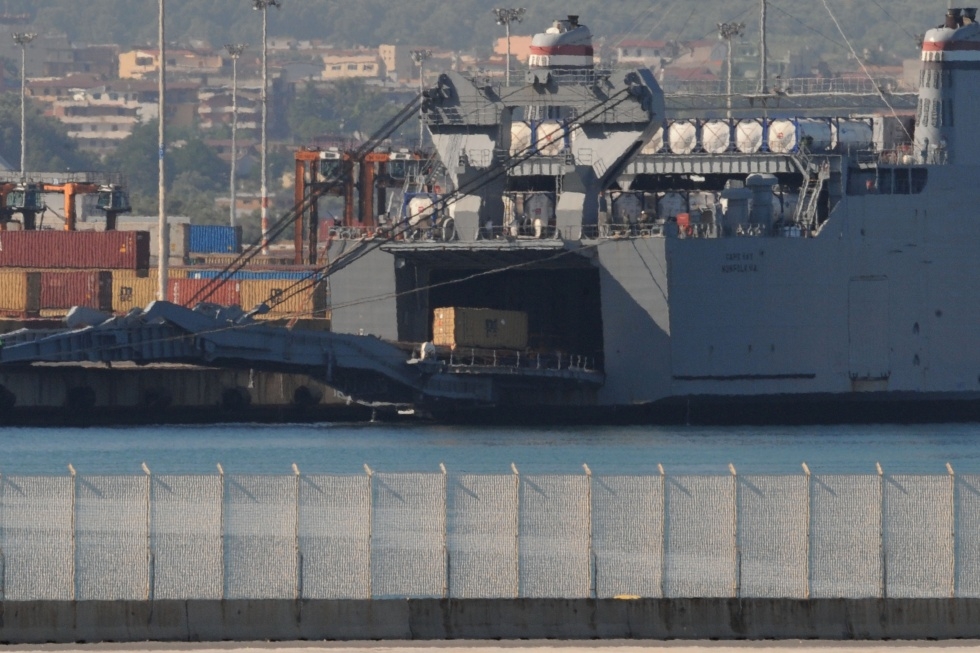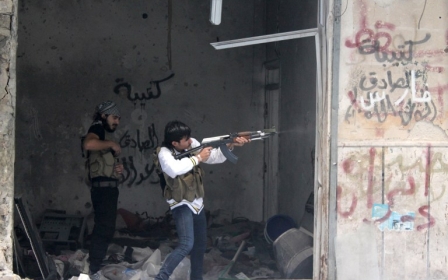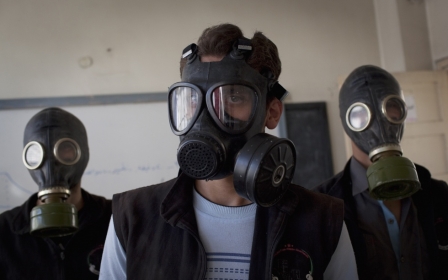Syria's 'most lethal' chemical weapons completely destroyed

The US has completed the destruction of the worst of Syria’s chemical weapons, President Barack Obama said on Monday.
"The most lethal declared chemical weapons possessed by the Syrian regime were destroyed by dedicated US civilian and military professionals using a unique American capability aboard the M/V Cape Ray," Obama said.
US Secretary of State John Kerry said the neutralisation of the stockpiles was completed ahead of "the one year anniversary of [Syrian President Bashar] al-Assad’s bone-chilling, deadly chemical weapons attack that killed more than 1,000 innocent Syrians, including so many children in the suburbs of Damascus."
"We also remain deeply concerned by reports of systematic use of chlorine gas in opposition areas," said Kerry. "Each and every one of these issues must be fully resolved."
On Wednesday, the Organisation for the Prohibition of Chemical Weapons (OPCW) announced that it had neutralised “all 581 metric tonnes of a precursor chemical for sarin gas that were removed from the Syrian Arab Republic and trans-loaded onto the U.S. Maritime Vessel Cape Ray in early July, have been destroyed with neutralisation technology aboard the ship while sailing in international waters of the Mediterranean Sea.”
The OPCW Director-General, Ambassador Ahmet Üzümcü “thanked the United States for completing the destruction of the precursor chemicals in a safe and environmentally sound manner, and for its overall contribution to the international efforts to eliminate Syria’s chemical weapons programme.”
The destruction of Syria’s chemical weapons was originally put forward as a prerequisite to prevent a military intervention in the country’s civil war by the US and other allied forces.
A sarin nerve gas attack on the Ghouta region of Homs in 2013, in which over 1,000 people are thought to have died, provoked an outcry over the use of chemical weapons in Syria.
There was also some controversy over who was responsible for the chemical attack in Syria, with some voices suggesting that the responsibility could lie with Islamist fighters such as the al-Nusra Front.
Many observers including the UN and Human Rights Watch levelled the blame on Bashar al-Assad’s government, who implicitly admitted in July 2012 that it had been stockpiling chemical weapons. The country is thought to have been developing the weapons for years as a counterbalance to Israel's nuclear arsenal.
New MEE newsletter: Jerusalem Dispatch
Sign up to get the latest insights and analysis on Israel-Palestine, alongside Turkey Unpacked and other MEE newsletters
Middle East Eye delivers independent and unrivalled coverage and analysis of the Middle East, North Africa and beyond. To learn more about republishing this content and the associated fees, please fill out this form. More about MEE can be found here.




